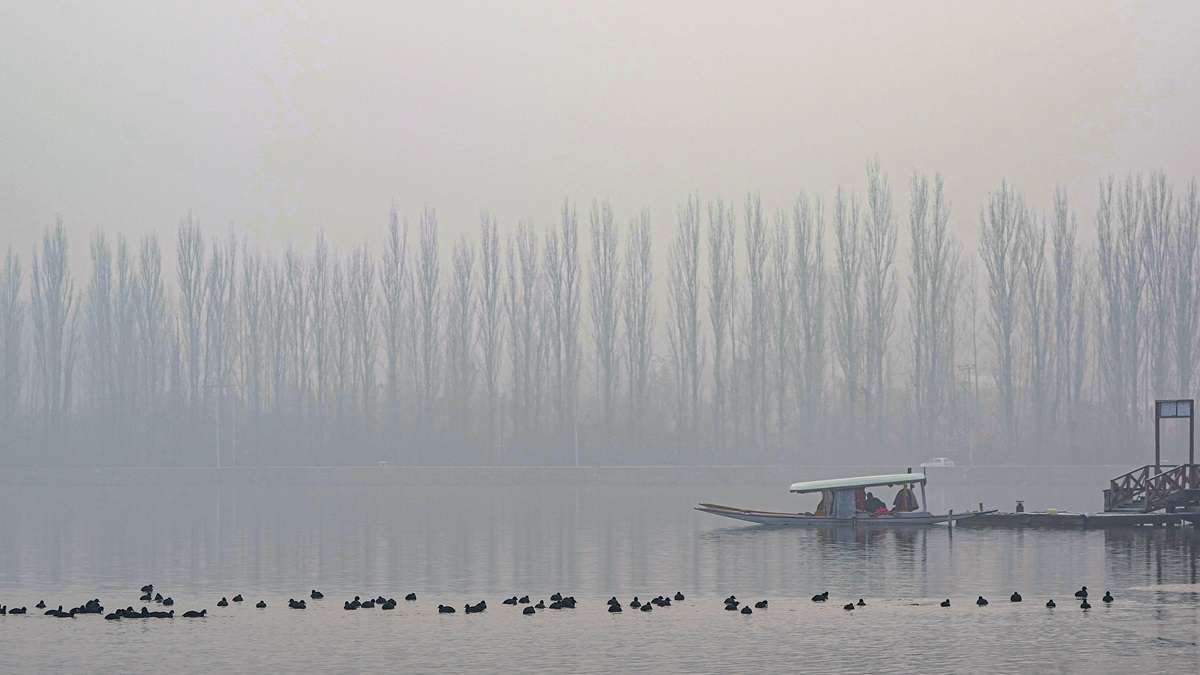 |
|
The Kashmir Valley is currently experiencing a severe cold wave, with temperatures plummeting to dangerously low levels. This extreme weather event has brought life in the region to a near standstill, impacting daily life and causing widespread disruption. Srinagar, the summer capital of Jammu and Kashmir, recorded a minimum temperature of -7.3 degrees Celsius on Tuesday night, a significant drop from the previous night's -6.6 degrees Celsius. This drastic decrease in temperature is indicative of the intensity of the current cold wave, and forecasts predict even lower temperatures in the coming days, with a potential drop of two to three more degrees. This unprecedented cold snap is not limited to Srinagar; other areas within the valley are experiencing similarly frigid conditions, creating a widespread impact on the region.
One of the most visually striking consequences of this extreme cold is the freezing of the Dal Lake, a significant landmark and integral part of Srinagar's identity. The iconic lake, usually teeming with activity, is now partially covered in a thin layer of ice, a testament to the severity of the cold wave. This freezing extends beyond the Dal Lake, impacting numerous other water bodies across the valley. Furthermore, the plummeting temperatures have caused the freezing of water supply lines in many areas, creating significant challenges for residents and disrupting the routine access to water, highlighting the vulnerability of infrastructure to such extreme weather conditions. The disruption caused by the freezing water lines underscores the need for better cold-weather infrastructure resilience in the region.
The ongoing cold wave is taking place during the 'Chillai-Kalan', a 40-day period considered the harshest winter in Kashmir. This period, which commenced on December 21st, is characterized by frequent snowfall and significantly lower temperatures than average for this time of year. The meteorological department has issued forecasts for the continuation of this extreme cold, with a possibility of light snowfall at higher altitudes in the coming days. These predictions paint a picture of prolonged hardship for the residents of Kashmir, as the cold snap is expected to intensify before gradually easing in the new year. The prolonged exposure to freezing temperatures poses a significant risk to human health, potentially leading to hypothermia and other related illnesses. This necessitates an urgent response from authorities to provide support and resources to vulnerable populations.
Beyond the immediate impact on residents, the cold wave also affects tourism, a significant sector of Kashmir's economy. The freezing of the Dal Lake and other water bodies limits the recreational activities usually associated with the area, impacting both local livelihoods and the tourism sector. Additionally, the potential for further snowfall could lead to disruptions in travel and transportation, further compounding the challenges faced by the region. The ongoing situation underscores the vulnerability of Kashmir to climate change and extreme weather events, highlighting the need for long-term planning and investment in infrastructure to mitigate the risks associated with such conditions. The need for effective and timely measures to address the hardships caused by this extreme weather cannot be overstated.
The meteorological department’s forecasts also extend beyond the immediate days, predicting the possibility of light snowfall at higher elevations, especially around New Year’s Eve and into the first few days of January. This prolonged period of cold weather, encompassing the Chillai-Kalan, Chillai-Khurd, and Chillai-Bachha periods, necessitates preparedness and resilience from the population of Kashmir. While the Chillai-Kalan period (40 days) marks the most intense part of the winter, the cold wave persists even after its conclusion, underscoring the extended nature of the challenges faced by the region during this harsh season. The government and related agencies should implement measures to prevent water supply issues and facilitate the provision of essential services. The need for adequate preparedness and community support will be crucial in ensuring the well-being of the population during this prolonged cold spell.
